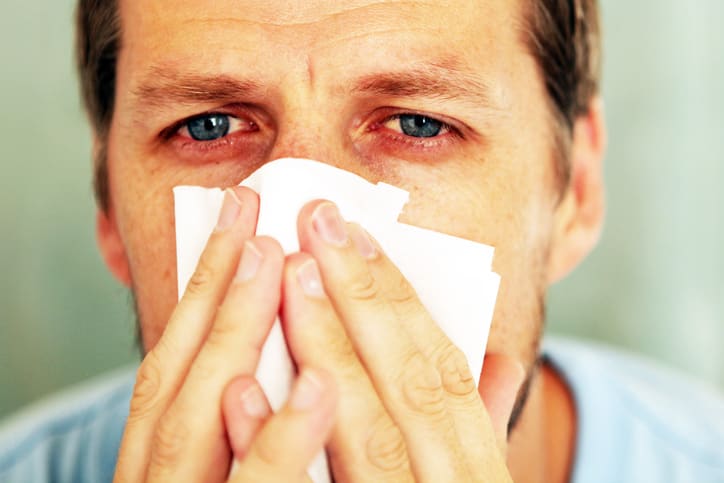-
How Often Should You Get Your Eyes Checked?

When it comes to your health, prevention is the best medicine. That’s why regular eye doctor visits are invaluable for maintaining your vision. When you get your eyes checked, the ophthalmologist makes sure your prescription hasn’t changed and tests for various conditions that could affect your eyesight. When caught and treated early, it’s possible to keep your vision crisp and clear.
The question many people have is how often should you get your eyes checked? Consider these recommendations.
Vision Correction Eye Exam
If you wear glasses or contact lenses, you should visit the eye doctor for a vision checkup every one to two years. Your prescription expires after this length of time, so it’s important to make sure your eyes haven’t changed before you buy new glasses or order more contacts.
Comprehensive Dilated Eye Exam
During more thorough eye exams, the ophthalmologist administers special eye drops that make your pupils dilate, or open wide so the doctor can take a closer look at the inside of your eyes. This is useful for detecting eye diseases such as glaucoma, cataracts and macular degeneration.
Preventblindness.org advises having a comprehensive eye exam as often as recommended by your eye doctor. Here are the general guidelines for how frequently you should have comprehensive dilated eye exams:
- 20 to 39 years old: Schedule a dilated eye exam every two to four years if you’re African-American, or every three to five years if you’re Caucasian.
- 40 to 64 years old: Schedule a dilated eye exam every two to four years.
- 65 years and older: Schedule a dilated eye exam every one to two years.
- People with special needs: If you’re at risk for eye problems because you have diabetes, a previous eye trauma or surgery, or family history of eye disease, talk to your eye doctor about how often you should get your eyes checked.
Signs You Should Schedule an Eye Exam
Having a vision checkup once a year and following the above-recommended schedule for comprehensive dilated eye exams should keep your vision in good shape. However, if you experience symptoms of eye trouble, you should visit an ophthalmologist right away, no matter when your last eye exam was. Here are the signs you should schedule an eye exam:
- Your eyes are itchy, red and dry.
- You see spots, excessive floaters or flashes of light.
- You have difficulty reading street signs while driving at night.
- You get headaches or experience blurred vision or eye strain after working at a computer for a long time.
- You have trouble following moving targets or get dizzy and nauseated when you try.
- You have to squint to read books or newspapers up close.
- You notice sudden changes in your vision, especially after experiencing head
- You can’t remember the last time you had an eye exam.
Get your eyes checked today – call Gerstein Eye Institute in Chicago, IL at 773.596.9545 to schedule your next appointment!
-
Common Eye Allergies and Solutions

If you suffer with seasonal allergies, you’re not alone. According to the American College of Allergy, Asthma and Immunology, up to 30 percent of adults and 40 percent of children experience allergies each year.
Along with sneezing, runny nose and congestion, many seasonal allergy sufferers experience red, itchy, swollen or watery eyes. With more information about what causes common eye allergies, you can learn to avoid them and find solutions for your symptoms.
Most Common Eye Allergies
An allergy is when your body reacts negatively to a usually harmless substance. There are all sorts of sensitivities, but the most common culprits of eye allergies include:
- Pollen
- Mold
- Dust
- Pet dander
- Cosmetics
- Eye drops
Avoiding Eye Allergens
The first step is to figure out what you’re sensitive to with allergy testing or through simple observation. Then, you can take necessary precautions to prevent exposure to them.
For instance:
- If your eyes itch and swell after petting animals and then touching your eyes, you should keep pets out of your bedroom and wash your hands immediately after handling dogs or cats.
- If outdoor allergens are to blame, stay inside on days when pollen counts are high, and wear wraparound sunglasses to shield your eyes from pollen.
- If dust sets you off, wash your bedding weekly in hot water and replace wall-to-wall carpeting with hardwood floors.
- If cosmetics or eye drops make your eyes swell, look for all-natural products to prevent this.
It may also be helpful to switch from contact lenses to glasses during allergy season. Contacts can accumulate airborne allergens, which irritate your eyes and worsen your symptoms. Glasses, on the other hand, actually help keep irritants out of your eyes.
Solutions for Eye Allergies
If you need relief from your symptoms, try these tips:
- Apply eye drops. Over-the-counter varieties should work for relatively mild symptoms, while you may need a prescription to treat more severe eye allergies.
- Take antihistamines and decongestants to reduce the symptoms of an allergic reaction, including red, itchy eyes.
- Apply a cool washcloth to your eyes to relieve puffiness. Cumber slices are also effective.
- Apply cold, damp tea bags to your eyelids. After steeping tea, save the bags. Keep them in the fridge until your next allergy flare-up. Then, place them on your closed eyes for two to five minutes.
- Flush away irritants with saline solution. Stand over a sink and rinse your eyes with sterile saline or artificial tears.
Eye allergies are just one consideration in your overall eye health. To ensure your vision stays crisp and clear, make it a priority to visit Gerstein Eye Institute in Chicago, IL for preventative eye care. We have been helping patients take care of their vision since 1968, and we’re committed to helping you find the right treatment for you! For more information, or to schedule an eye exam, please contact us at 773.596.9545 today.
